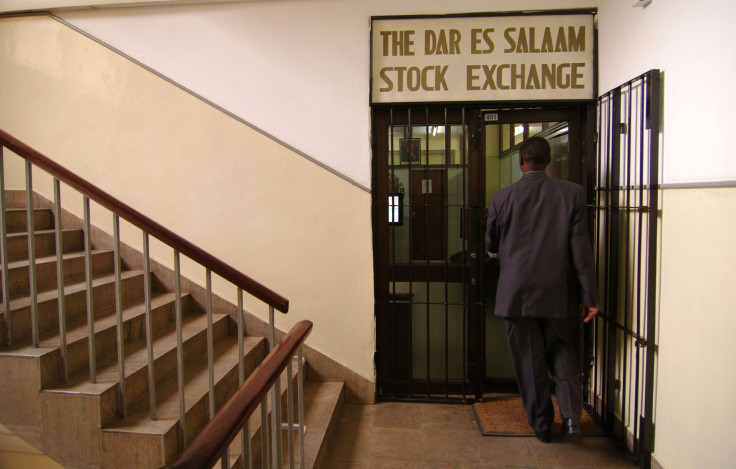East African Stock Exchange In The Works To Merge Buoyant, Profitable Markets

A new stock exchange for East Africa may coalesce in as little as one or two years, according to regional officials. The joint market, which would merge existing exchanges in Kenya, Rwanda, Tanzania and Uganda, would have a combined capitalization of about $31 billion.
"Definitely we want to have one stock exchange. Technically, I think we are almost there. Maybe it will happen in about a year or two," Kenneth Kitariko, CEO of the Ugandan brokerage firm African Alliance, said to reporters at an event organized by Thomson Reuters. Stock markets across North Africa and in South Africa have traditionally been the most attractive to foreign investors, but fast economic growth in East and West Africa has lately thrust countries like Ghana, Nigeria and Kenya into the spotlight. However, the East African market won't be the first regional stock exchange -- it trails behind pioneers including the Central African Market Exchange, or BVMAC, in French, and the West African Stock Market, or BRVM, in French.
East Africa's plans to merge exchanges are in line with a program of economic integration meant to open borders and ease commerce between the five member states of the East Africa Community, or EAC: Kenya, Rwanda, Uganda, Tanzania and Burundi. The region kicked off its common market -- which entailed dismantling trade barriers across borders -- in 2010, with the goal of establishing a fully free regional market by 2015. Of the EAC members, however, Burundi does not have a stock market and is therefore not directly involved in the merging of exchanges.
Gabriel Kitua, chief executive director of Tanzania's Dar es Salaam Stock Exchange, said that the joint market would ease transactions between member countries. "The challenge right now is if you want to trade a share that is listed in Uganda, but of a Tanzanian company, you will actually have to demobilize, take your share certificate, go across the border, re-immobilize it in that exchange and then trade, which is not effective cross-border trade," Kitua said.
Plans to merge exchanges have been held up by logistical difficulties, not least of which is the tendency of small- and medium-sized companies to neglect careful bookkeeping. But a merging of markets -- and all the bureaucracy that entails -- could help to normalize bookkeeping and other corporate governance practices across the region. "We encourage companies to follow good governance," said Kitariko. "We can't just wake up and say we are together. This is a work in progress."
© Copyright IBTimes 2024. All rights reserved.





















